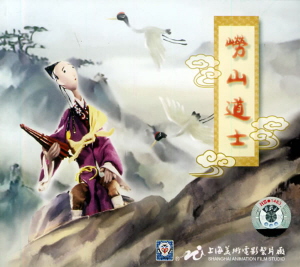- Lao Mountain Taoist
Infobox Film
name = Lao Mountain Taoist
 |200px
|200px
caption =
director =
producer =
writer =
starring =
music =
editing =
distributor =Shanghai Animation Film Studio
released =1981
runtime =
rating =
country =China
awards =
language = Mandarin
budget =
gross =
followed_by =
amg_id =
imdb_id =Lao Mountain Taoist (zh-c|c=崂山道士) is a Chinese animated film produced by the
Shanghai Animation Film Studio withstop motion -animatedpuppet s and ink paint.Background
The production was finished in
1981 , and in2006 the film was voted as one of the most popular domestic animations. Numerous novels and publications have been released under the same name in the past. The story, characters and contents are based on the ancient Chinese folklore story collectionStrange Stories from a Chinese Studio .tory
A long time ago, there was a young man called Wang Qi. When he heard that there were many immortals in Lao Mountain, he went there at once. There was a Taoist who still looked young although he was very old. Wang Qi became one of his pupils. During the first month, Wang Qi went to the hills for woods with others every day and listened to the instructions of his teacher patiently. In the second month, he felt that he could not stand the hard and tiring life, but he still waited for the teacher to teach him the magical skills. In the third month, he could not bear the suffering any longer. Upon requests, the Taoist taught Wang Qi the incantations to recite for walking through walls [Purple Culture Catalog. " [http://www.purpleculture.com/vpro.asp?id=538 Purple Culture] ." "The Taoist in Mountain Lao." Retrieved on
2007-01-04 .] .VCD release
The first known packaged release of the film was in the
1996 VCD .References
External links
* [http://www.cnmdb.com/title/13025/ China's Movie Database]
Wikimedia Foundation. 2010.
